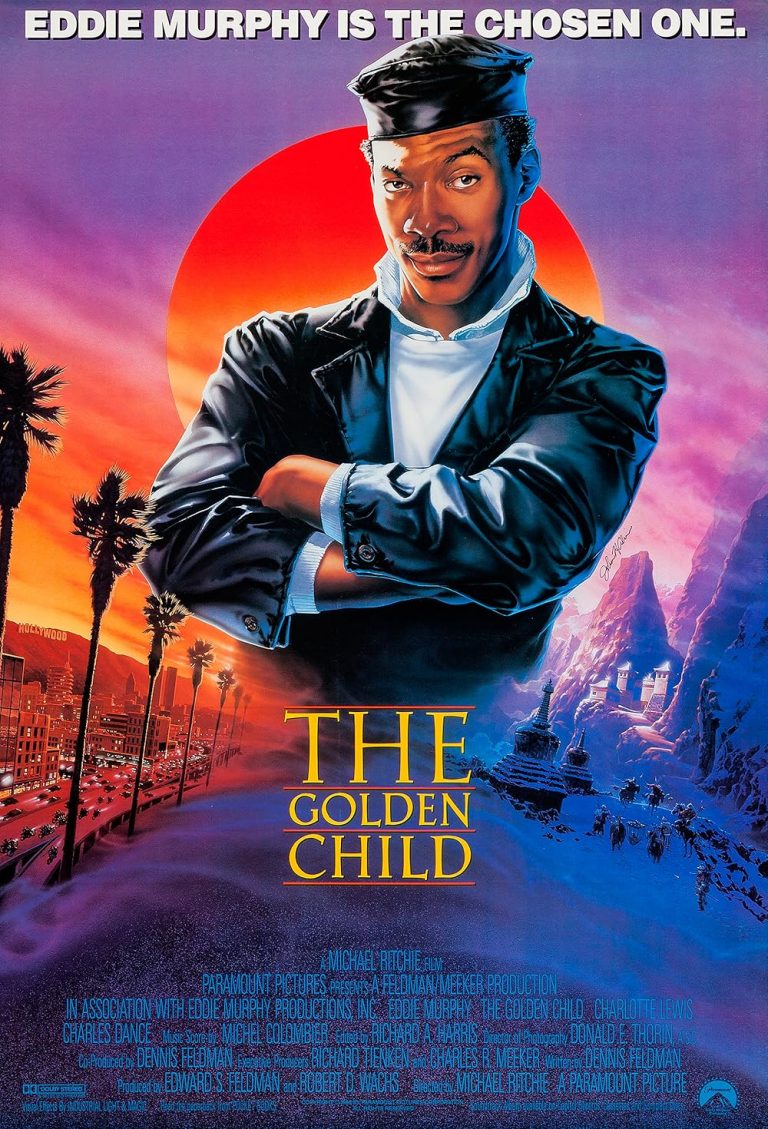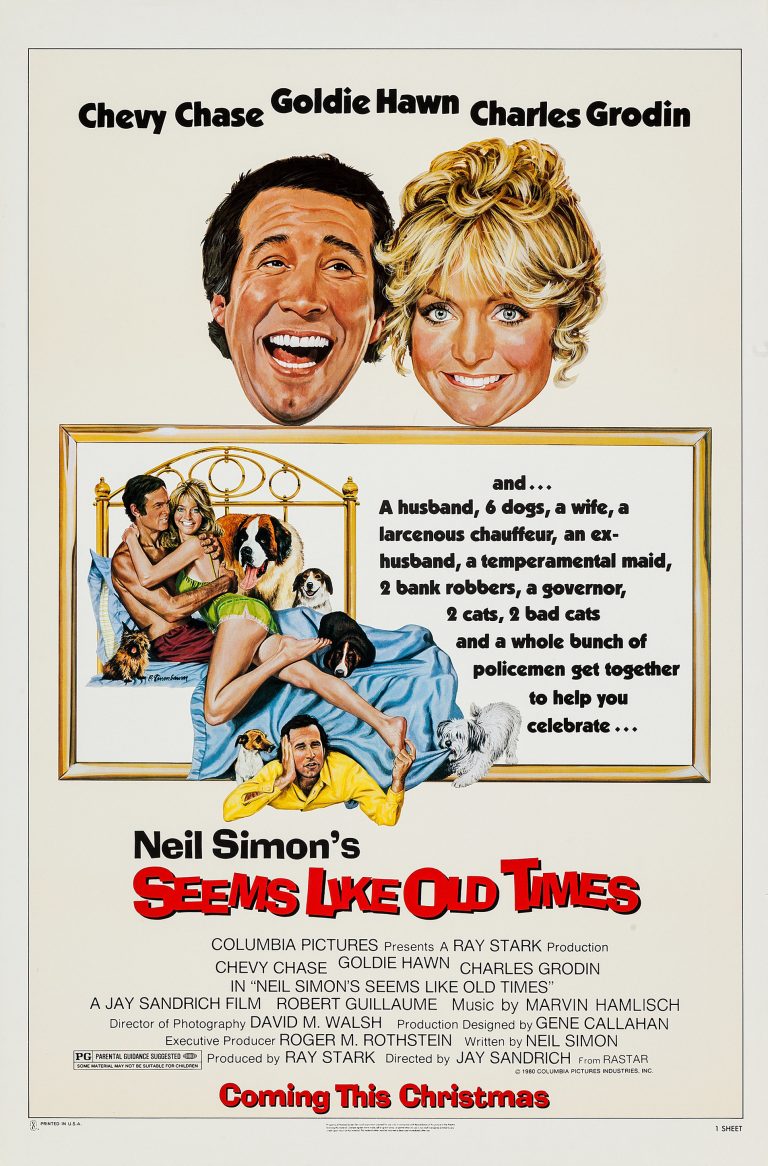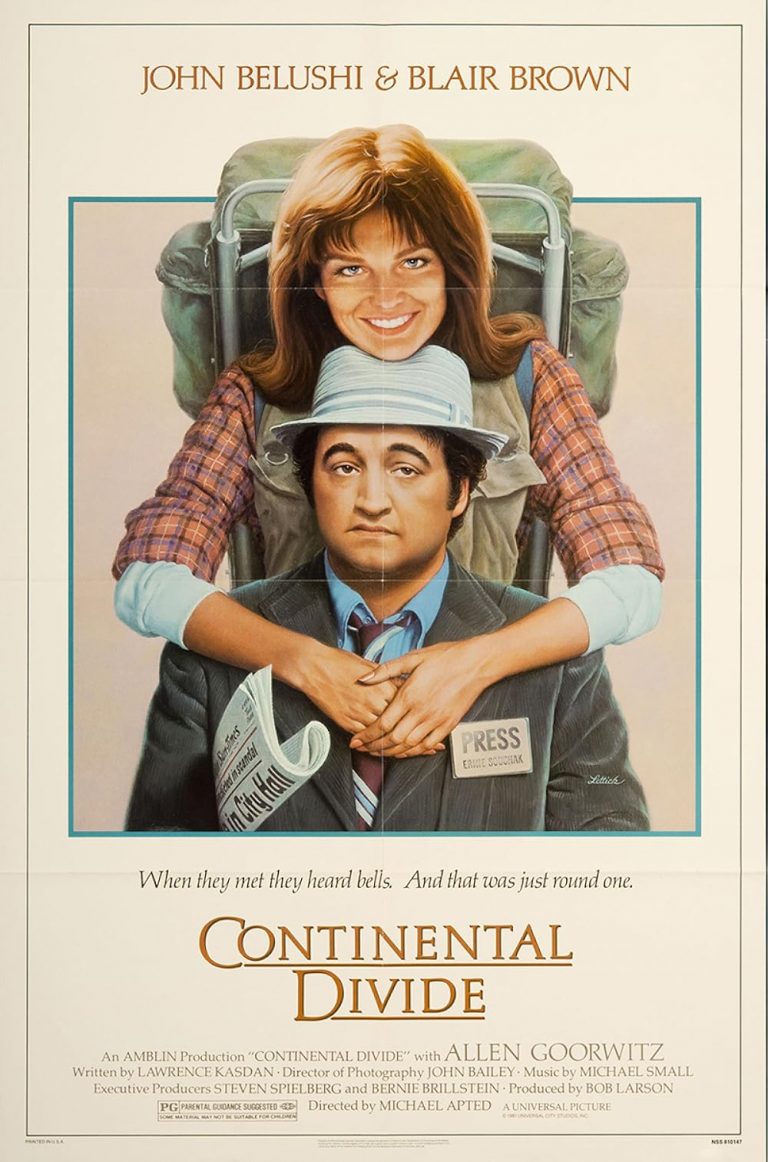Starring: Nicolas Cage and Elisabeth Shue, with small roles from Richard Lewis, Valeria Golino, R. Lee Ermey, Mariska Hargitay, and French Stewart
Grade: A
Though I would argue this isn’t Nicolas Cage best role per say, he definitely deserved the Academy Award for Best Actor this year.
Summary
In the opening credits, we see alcoholic screenwriter Ben Sanderson (Cage) picking up an obscene amount of alcohol from the grocery store. Following this, a visibly sick Ben barges in on a meeting at a restaurant between producer Peter (Lewis), Marc Nussbaum (Steven Weber), and two actresses. He privately asks Peter for money again and Peter gives it to him, though he tells Ben to never contact him again. Later, Ben goes to a bar and tries hitting on a patron named Terri (Golino) but his drunkenness ruins the mood. He drives drunk to a strip club and later picks up a hooker. He talks to the hooker about his ex-wife and then wakes up on his kitchen floor, vaguely remembering the hooker sucking his wedding ring off his finger. The next morning, he tries to cash a check but can’t sign it because he hasn’t had a drink yet and has the shakes. It’s so bad, he can’t even write. He gets a quick drink at the bar, while getting a lecture from the bartender that regularly serves him and goes back to sign it. Sometime after, Ben goes to work but is fired. His boss asks him what he plans on doing now, and Ben tells him he’s going to move to Las Vegas.
In Las Vegas, we see Latvian pimp Yuri Butsov (Julian Sands) send his prostitute Sera (Shue) on a job to fuck a bunch of businessmen (and one woman).
Funnily enough, one of them was French Stewart.
Following uncomfortable sex between Yuri and Sera (where Sera does not seem to be enjoying herself), we see Ben at his home, burning everything he owns. Right after, Ben starts his drive to Vegas. Upon getting there, he runs a red light and almost hits Sera who points out Ben being wrong and walks away.
Soon after, Ben stops at “The Whole Year Inn” and gets a room. Afterwards, he’s lucky enough to run into Sera again and correctly guesses she’s a prostitute. She agrees to his offer of $500 (which could guarantee him anything he wants), and they go back to his room at the inn. There, Ben stops her from giving head and asks her to either talk or listen for the rest of the session because he’s clearly lonely. Surprised, she accepts this, and they have a conversation over drinks. This is where Ben reveals to her his masterplan of drinking himself to death. He cashed in all his money, paid his AMEX card, and he’s going to sell his car the next day. At his current rate, he thinks he’ll die in about four weeks. Despite her session going past the hour mark, she stays with him, and they talk until they fall asleep. The next morning, Sera goes back to Yuri and gives him his money, but he hits her because it’s not enough. She grabs a knife and points it at him but stops herself. Instead, she gives him the knife and bends over the kitchen table because to punish her, he sometimes cuts her. He calls her crazy, demands she brings him the money after tonight, and leaves. At a pawn shop, the paranoid Yuri tries to sell his jewelry for $3,000, but the guy only offers $1,000 because most of it is synthetic. Ben walks in and sells his watch for $500.
After Sera tries to work her magic on some old guy (Ermey) and he angrily refuses, we see during Sera’s therapy sessions that she still thinks about Ben even after their one night together. She has started to like him and even went out for a night to hopefully bump into him again. Eventually, she does find him sitting on a bench, drinking a martini. At this point, Ben has already sold his car and is taking cabs everywhere. He offers to take her to dinner and even asks about her relationship status, but she decides against it and leaves. She gives her money to Yuri at a hotel room, but the man is losing it. He puts her head up against the wall to listen to the room next to him because he’s convinced someone is talking about him. He then fires her and tells her to leave. Once she gets into the hallway, she walks past gangsters going into Yuri’s room to kill him. Not having anything to tie her up at the moment, she goes straight to Ben’s room at the inn, and they go out to a restaurant to have their first official date together. This mismatched romance starts to blossom, but it’s a tragic one at that. They start to really like each other, but things will get tough because Ben makes it clear to Sera she can never, ever stop him from drinking. She agrees to this deal, but it will be their relationship’s undoing.
My Thoughts:
Leaving Las Vegas surprised me. Despite the story being centered around two of the most clichéd characters fiction has ever produced (the alcoholic and the “hooker with a heart of gold”), we manage to get an inviting, dark romance drama powered by two incredible performances from stars Nicolas Cage and Elisabeth Shue. Complimented by a somber jazz score and an independent film feel by director Mike Figgis, this romance draws you in, despite the promise of a tragedy from the opening credits.
As we know, when Nicolas Cage is on, he’s fucking on!
Cage powers the film with excellence in his role as Ben, the alcoholic with the goal of drinking himself to death. What’s interesting is that his background isn’t very important. In fact, most of what we learn of the character is fairly irrelevant. He’s a former screenwriter, but he could’ve been a generic businessman and the outcome of this film would’ve been exactly the same. Even though the movie is centered around the character of Ben Sanderson, the entertainment really stems from the actors. Leaving Las Vegas was made for the actors to paint whatever they wanted into this canvas of film. The characters were written with room to grow, giving the actor the opportunity to cultivate the personality and create his/her own depth through expression and interactions with their surroundings. This goes for Cage and Elisabeth Shue’s portrayal of Sera.
Nicolas Cage covered all aspects of the depressive Ben. We do see a bit of the “fun drunk” in some scenes and how comfortable Ben is in every situation once he has a drink, but we also see the complete breakdown he has when he’s without one. He deals with withdrawal symptoms virtually any time he’s sober, and he’s barely coherent, staring ahead with a thousand-yard stare until he gets his next fix. It’s every day with him. At one point, we see Sera making some food and as she tells him she bought some rice, he stares straight ahead, grabbing two bottles from the fridge and going to shower as he drinks them. Later, he’s relaxed and asks for the rice she made. He’s gone completely upside down with his drinking to the point where his normal self has become him in a drunken state. If you live with him like in Sera’s case, you want him to be sober, but he’s so out of it mentally when he is, it’s almost as if him drinking is the only way he’s bearable. Even then, his outbursts make him a loose cannon to the point where you feel bad for him but can’t/won’t step in because he chose the life he’s living and refuses to come out of it. It’s as if he’s pointing the gun to his head and if anyone steps any closer, he’ll pull the trigger. Ben has accepted his fate and though Sera wants to get closer, she knows it will push him away and deject him even further from reality. All she hopes for is for him to potentially change his mind, even if it is a pipe dream.
When he checks into the “The Whole Year Inn”, he sees it as “The Hole You’re In” and though this is maybe a little too on the nose, you can’t disagree with the placement of it, especially at this point of the narrative. It shows us exactly how low Ben has sunk and will continue to sink as the character’s hole continues to get deeper. The problem is that he has no plans on trying to escape this hole, as he has accepted where he’s at. At the same time, this statement represents Sera’s position too, as she is living an equally dangerous life. This is what attracts Sera to him because of both of their situations and their honesty between each other about it. As it brings them together however, the fact that Sera tries to find a way out of her hole while Ben doesn’t, starts to create the divide between them.
At first, Ben’s plan to die in four weeks due to his alcoholism seems far-fetched but when we see how Ben acts daily, with complete conviction by Cage, we can see why drinking to excess seven days a week could easily do the job. His whole life becomes alcohol. It’s his number one priority. To show us his obsession, there’s an earlier scene where he speaks into a tape recorder in line at the bank and talks about how he would lick bourbon off of a naked woman and still let her leave afterwards to fuck someone else, just so he can get the liquor off of her body. This is where Ben is at, and he’s fine with it. If this doesn’t show us the dangers of addiction front and center, I don’t know what does. Even with Ben ruining his own marriage with it and despite having a good thing with Sera, he doesn’t plan on changing for her. He’s dead set on dying, telling Sera before things progress that she will not change him. It’s heartbreaking to see someone this far into their own addiction, but Cage makes us believe in him from start to finish, as we hope and pray, he may wake up and realize how good he has it with her.
Equally as important to the film’s success was Elisabeth Shue as Sera. Sera is stuck in the dangerous career of a Las Vegas prostitute, being fuck buddies with a crazy Latvian pimp, and being abused sexually and mentally by him and clients to the point where she has nothing else and no one else to go to. All she has are her therapy sessions. Are they working? It’s hard to say, but it’s nice that we’re able to find insight into her mindset because she keeps up such a front for most of the movie, we don’t get to know how she’s truly feeling. Here, we’re able to see the softer side of her, making the audience fall for her more than Ben does. I enjoyed these cutaway scenes for a few reasons. First, we kept all the focus on Sera. The closeups, the quick cuts after each statement, and giving Shue time to really mold the thought process and conflicted mind of Sera, helped keep the focus solely on her. We never see the therapist she’s talking to, nor do we hear him/her, and it’s a great choice. The therapist isn’t needed. We just want to hear Sera’s raw thoughts as they come. This is where we can feel the honesty in what she’s saying and her infatuation for Ben and how it comes to be. Despite the relative unbelievability of their chance encounter striking her to the point she starts to like him, you believe it because of the earnestness of Shue’s performance. No therapist was needed to ask nonsensical questions to waste time. Let’s just cut out the middleman and go straight to her thoughts! I like that. On top of that, the way they edited it was very dramatic and memorable.
Second, it changed the movie. It’s not just about Ben because though there is some “in vino veritas” as he drinks, you can’t focus the screenplay solely on him because a lot of his speech consists of outbursts, rambling thoughts, and the occasional sweet but sad sayings he has for Sera, so she doesn’t completely give up on him. Her conversations with the therapist offered some direction when things could’ve slowed down and lets us in on why she’s able to fall for someone like Ben. Shue plays distant very well, and the character of Sera is distant from any kind of human emotion because of her situation in life. As a hooker, you know she’s been through tough times and from what we see in the movie, she’s used and abused far too often. With no family or friends to speak of, it makes sense as to why she enjoys her small interaction with Ben from the beginning. Just some light conversation and honesty with a hurting Ben is enough for her to be drawn to him. She feels his pain about life and is attracted to the fact that he just wanted to talk to get his mind off things. It could be argued she’s using him to make herself feel better, but it doesn’t seem like it. She’s genuinely affected by his sympathetic approach whether he means it or not in his drunken state. She sees he’s in need and how bad he’s hurting, despite him never admitting it directly.
Then again, he doesn’t need to say it because we see it firsthand.
He’s lonely but so is she. She’s hurting just like Ben, and the stars have aligned for them to meet. In a way, it’s a modern, depressing fairytale. This is why it makes sense as to why she offers him a place to stay so soon after they hang out. It’s not about sex. It’s about helping someone in need and despite where he’s at mentally, what her job entails, and how this relationship is doomed from the start, for this short month, it’s all these two ever wanted. If only they met each other at a different time. Then, maybe things would’ve been different. This is the somber reminder we get consistently in the second half of the film as Sera falls deeply in love with Ben and tries her best to not let the drinking bother her, but his intentions remain the same despite him loving her back. I know some of his actions say differently, but it’s his fixation that ruins things. Before he moves in, he tries to explain to Sera why things will turn sour if he stays with her. Though he admits she’s like the antidote to his personal problems and things are going great, he promises this “honeymoon phase” will not last forever. He even points out his own faults and the dark side of being in a constant drunken state. Ben warns her and despite knowing how he is, we, just like Sera, hang onto this emotional rollercoaster of a relationship in hopes he may change his upsetting promise.
Unfortunately, when one is too far gone, the outcome is inevitable.
All things considered, this is one hot romance and gets intense in a hurry. You can see it in Sera’s eyes when she’s thrown up against the wall by Ben and kissed in front of a bunch people in a casino saying silently, “I love you” to him when he’s helping pick up money he knocked over. It fits the bill of a relationship between a hooker and an alcoholic. Some scenes can get pretty graphic in a hurry but again, considering the characters and the plot, you shouldn’t be surprised going into this. These are two characters that live a rockstar lifestyle, with neither one having anything to lose and knowing full well their relationship is on borrowed time from the beginning. If Ben wants to lick bourbon off Sera’s naked body in broad daylight at a motel pool, he’s going to do it. There’s also the violent climax that may be especially graphic for some, but this dark scene is pivotal for Sera and changes everything, leading to an emotional ending.
I will point out that Julian Sands’s portrayal of Yuri was comically bad. There’s no other way to put it. Much like John Malkovich in Rounders, this man was acting as if he was in an entirely different movie from our two main stars.
Though you know the inevitable is coming, an intense and unpredictable Nicolas Cage and a tough but sympathetic Elisabeth Shue really get us invested in story that would otherwise be stereotypical and predictable. We gravitate towards Ben, hoping Sera can change him, but we know there is no saving him. All you can do is just watch. It’s what Ben would’ve wanted, and that’s what you and Sera have to sadly accept, creating a gloomy, tension-filled, Oscar-worthy film. Stylistically shot on a super 16mm and accompanied with warped cinematography, giving us hazy views of the city through the eyes of the slovenly drunk, Leaving Las Vegas is a highly memorable romance drama showcasing how well acting can make a basic story into an award-winning film.





+ There are no comments
Add yours